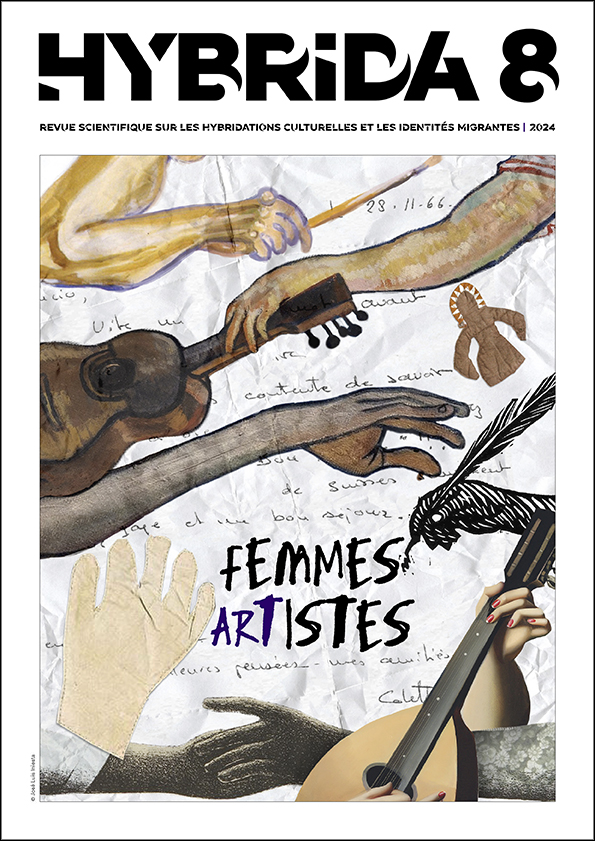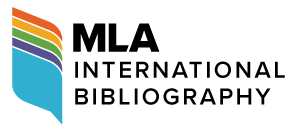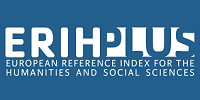‘Whores are not women’. Theoretical-literary gestures of Monique Wittig as a possible escape and refuge for lesbians and prostitutes
DOI:
https://doi.org/10.7203/HYBRIDA.8.28427Keywords:
Monique Wittig, lesbian, prostitute, feminism, language, escape Abstract
Abstract
This article examines in an inductive, fragmented and interdisciplinary way the possible relations between lesbian identity and the identity of the prostitute based on the theoretical-literary operations and gestures of the French writer and lesbofeminist activist Monique Wittig. From the topos Lesbos-Safo, and the metaphor of the island as a border place, some of Wittig’s proposals, significant of French materialist feminism, are reviewed, unraveling some of her operations such as the resistance to binarism and the abstraction of language, as well as the flight as identity displacement, seeking its articulation with the identity of the prostitute from the idea of escape-refuge. The text is methodologically articulated from the interpretation of a series of selected readings, and concludes by opening the discussion about the potential affinities between these identities in fleeing from the sex-gender system.
 Downloads
Downloads
 References
References
Agustín, Laura M. (2008). Sex at the Margins. Migration, Labour Markets, and the Rescue Industry. Zed Books.
Balza Mugica, Isabel. (2013). «Hacia un feminismo monstruoso: sobre cuerpo político y sujeto vulnerable. En Beatriz Suárez Briones (ed.), Las lesbianas (no) somos mujeres. En torno a Monique Wittig (pp. 85–116). Icaria.
Bornay, Erika. (2008). Las hijas de Llilith. Cátedra, colección Arte Grandes temas.
Burke, Mary Ann y Eichler, Margrit. (2006). The BIAS FREE Framework: A Practical Tool for Identifying and Eliminating Social Biases in Health Research. Global Forum for Health Research. https://www.files.ethz.ch/isn/128225/2006_BIAS_FREE_English.pdf
Cabral, Mauro (Ed.). (2009). Interdicciones. Escrituras de intersexualidad en castellano. Anarrés Editorial.
Caprio, Frank. (1954): Female Homosexuality: A Psychodynamic Study of Lesbianism. The Citadel Press.
De Landa, Manuel. (2010). Mil años de historia no lineal. Gedisa.
De Lauretis, Teresa. (16-17 de junio, 2001). When lesbians were not women [Conferencia]. En Marie-Hélène Bourcier y Suzette Robichon (Dirs.), Colloque autour de l’œuvre politique, théorique et littéraire de Monique Wittig [En torno a la obra política, teórica y literaria de Monique Wittig]. Paris. https://www.bibliotecafragmentada.org/wp-content/uploads/2016/11/Cuando-las-lesbianas-no-%c3%a9ramos-mujeres.pdf
Dorlin, Elsa. (2003). Les putes sont des hommes comme les autres. Raisons politiques, (11), 117–132. https://doi.org/10.3917/rai.011.0117
Evans, Elliot (2020). The Body in French Queer Thought from Wittig to Preciado: Queer Permeability. Routledge.
Fariña Busto, Maria Jesús. (2013). Haciendo cosas con el lenguaje. La escritora en su taller. En Beatriz Suárez Briones (Ed.): Las lesbianas (no) somos mujeres. En torno a Monique Wittig (pp 117-147). Icaria. https://traficantes.net/sites/default/files/pdfs/9788498885385.pdf
Fausto-Sterling, Anne. (2006). Cuerpos sexuados. La política del género y la construcción de la sexualidad. Melusina.
Floyd, Kevin. (2009). The reification of desire. Toward a Queer Marxism. University of Minesota Press.
Foucault, Michel. (2009 [1966]). Las palabras y las cosas. Una arqueología de las ciencias humanas. Siglo XXI Editores.
Freeman, Elizabeth. (2010). Time Binds. Queer Temporalities, Queer Histories. Duke University Press.
Guillaumin, Colette. (2012 [1975]). Práctica del poder e idea de Naturaleza. En Ochy Curiel y Jules Falquet (Compliladoras), El patriarcado al desnudo. Tres feministas materialistas (pp. 27–67). Brecha Lésbica.
Haraway, Donna. (2016). Staying with the trouble. Makin Kin on the Chtulucene. Duke University Press.
Stedelijk Museum. (2017): Talk: Donna Haraway and Rosi Braidotti, - March 25, 2017. [Video]. Vimeo. https://vimeo.com/210430116
Kristeva, Julia. (1981). Semiótica. Editorial Fundamentos.
Legal Centre Lesvos, (5 agosto 2022). Drift-Backs In The Aegean Sea. https://legalcentrelesvos.org/2022/08/05/over-2-years-of-systematic-and-widespread-violent-attacks-against-migrants-in-greek-seas-carried-out-by-the-hellenic-coast-guard-and-frontex/
Lorde, Audre. (1982). Zami: A New Spelling of My Name. Crossing Press.
Macinnes, Jack (Director). (2015). Sappho: Love and Life on Lesbos. [Documental]. BBC Documentary. https://www.youtube.com/watch?v=l0IGg1Bljug
Nestle, Joan. (1987). A Restricted Country. Firebrand Books.
Platero, Lucas. (2014). Trans*exualidades. Edicions Bellaterra.
Rubin, Gayle. (2006 [1984]): Thinking sex: Notes for a Radical Theory of the Politics of Sexuality. En Richard Parker y Peter Aggleton (Eds.), Culture, Society and Sexuality (pp. 150–187). Routledge. https://bpb-us-e2.wpmucdn.com/sites.middlebury.edu/dist/2/3378/files/2015/01/Rubin-Thinking-Sex.pdf
Sánchez, Sabrina, Porn, Linda, y Corrales, Andrea. (Participantes). (2019): #Visibles III Festival de Cultures Lesbianes: “Tortas, putas y travas, una hermandad histórica”, Sabrina Sánchez, Linda Porn y Andrea Corrales – Festival de Cultures Lesbianes [Grabación de audio de Mesa colectiva]. Soundcloud. https://soundcloud.com/search?q=Tortas%2C%20putas%20y%20travas%2C%20una%20hermandad%20hist%C3%B3rica
Volóshinov, Valentín Nikoláievich. (2009): El Marxismo y la filosofía del lenguaje. Ediciones Godot.
Wittig, Monique. (1969). El Opoponax. Seix Barral.
Wittig, Monique. (1971). Las Guerrilleras. Seix Barral.
Wittig, Monique. (1977). El cuerpo lesbiano. Pre-Textos.
Wittig, Monique. (1985). Virgile, non. Les Éditions de Minuit.
Wittig, Monique. (2005). El pensamiento heterosexual y otros ensayos. Egales.
Wittig, Monique y Zeig, Sande (1981): Borrador para un diccionario de las amantes. Lumen.
WU MING (2002). Esta revolución no tiene rostro. Escritos sobre literatura, catástrofes, mitopoiesis. Acuarela libros.
Downloads
Published
How to Cite
-
Abstract131
-
PDF (Español)148
Issue
Section
License
![]()
All the documents in the OJS platform are open access and property of their respective authors.
Authors publishing in the journal agree to the following terms:
- Authors keep the rights and guarantee HYBRIDA the right to be the first publication of the document, licensed under a Creative Commons license Attribution-NonCommercial-ShareAlike 4.0 International (CC BY-NC-SA 4.0) that allows others to share the work with an acknowledgement of authorship and publication in the journal.
- Authors are allowed and encouraged to spread their work (once published) through electronic means using personal or institutional websites (institutional open archives, personal websites or professional and academic networks profiles) once the text has been published.
















